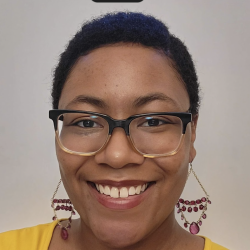
Finding Your Authentic Self Exercise
When you hear the phrase “authentic self,” do find yourself questioning exactly what authentic self even means? Your authentic self is who you truly are as a person in and out, regardless of your occupation, regardless of the influence of others, it is an honest representation of you. When you’re being authentic you feel what you do and who you are makes sense to you, you feel complete; there are no holes. A major aspect of being your authentic self is following your passion, and staying true to who you are at your core. As we get older and fall into societal pressures, it’s easy to develop a habit of doing things to please others. When we do this, we can stray from who we actually are at our core, leaving us unsure of what it is that truly makes us happy, and truly makes us feel like ourself. To do things based off of how others will respond is no way to live. When we are being our authentic selves we fee, complete, and that is when we can experience peace.
Perhaps you are sold on this concept of living more authentically, but you’re unsure of where to even begin? If you want to move forward in being more authentic, it’s best to first go back. As children we are our most authentic selves. We are allowed room for creativity and play, we are impulsive, we follow are gut, we do what makes us truly happy, and we express a range of emotions (excitement, sadness, happiness) without hesitation. For example. if a five year-old boy wants to grow up to be an astronaut, he just really wants to be an astronaut. Part of his reasoning may be because he his dad is an astronomer, or he shares the love of space with his mom. Or, he may simply love what astronauts represent, and whats to go to space. Regardless of the initial reason when we find what we want and what makes us happy, we simply go for it. We question less as kids, and care less about what others may think of our choices. As children we do things based on ourselves; our feelings, our likes and dislikes, and our impulses. However, as we grow older, something changes. There is a shift from doing things based on want, to doing things based on should. For those of you who struggle to live authentically and function based on what you “should” be doing in life, here is a simple exercise to help you get back to simpler, more authentic times.
The Exercise
Take a pen and a piece of paper. Draw a line down the middle of the page, and use the left side of the paper for the following questions. Go back to when you were a kid, close your eyes, and answer this question:
- “What did you want to be when you grew up?” What was your childhood answer, before you were aware of any limitations?
- In addition to that question, what are your earliest memories of being happy? In these memories, what were you doing? Who was with you? What else were you feeling when you were happy? On a scale of 1-10, (10 being the most, 1, being the least) how comfortable did you feel with yourself during these moments?
Now, using the space on the right side of the page, answer these questions:
- What are you doing today as a grownup?
- Who influenced your decision?
- Is it what you expected it to be?
- What parts of your personality are strengthened as a result of the job?
- What is the story you tell yourself of how you chose this career? Or did the career choose you?
Take a separate sheet of paper to answer the following questions:
- What is your most recent memory of being happy? What were you doing? Who was with you? What else were you feeling? On a scale of 1-10, (10 being the most, 1 being the least) how comfortable did you feel with yourself during these moments?
- Has happiness changed for you over the years?
- How authentic do you feel?
- Do you feel true to yourself?
- What is one thing (if not more) in your life that makes the most sense to you? (Your job? Your marriage? Your passion?)
Now put the pen down, and with the paper right in front of you, just look. Look at your answers on each side. Do any of your answers from your past match with the answers regarding your current life? Is there anything that followed with you into your adulthood (i.e., what makes your happy, what makes you most comfortable, etc.)?
Is there anything that stands out to you the most that surprises you?
If you are in a career far different from what you wanted to do as a kid, why do you think that is?
Take the second piece of paper and put it directly below your first piece of paper, where do you see connections, where do you see a disconnect? Where have things gone according to your true self? Where and when did you get lost?
What answer or piece of information grabs your attention the most? What do you want to do about it?
This exercise is about portraying and demonstrating your real self. This tip is meant to help you reflect back on your choices with your goal of authenticity in mind. If you have noticed that this is an area you struggle in, be kind to yourself with the process, overnight change isn’t expected. Authenticity takes time. It’s something we strive for, and work for over time. This exercise is about you taking time to really assess your current situation, and the choices that led you to where you are. Remember, authenticity isn’t always about passion. It’s about doing what works for you. You may not be in a career that you love and drives your passion, but is it a job that makes sense to you and your current situation? However, being in a job primarily for the money may be authentic, but still problematic for different reasons. Perhaps it’s a job that gives you the ability to pay for your child’s medical needs and gives you more personal time off to be with your family, and that’s what you value the most? As long as you are aware of your reasoning for your choices and being forthcoming about it, you are being authentic. This exercise is giving you the roadmap on how to effectively assess your choices and challenge your reasoning. The bottom line of striving for your authentic self: You are doing things that make sense to you, regardless of others around you, regardless of the “should’s,” regardless of the consequences. That is true authenticity.






















